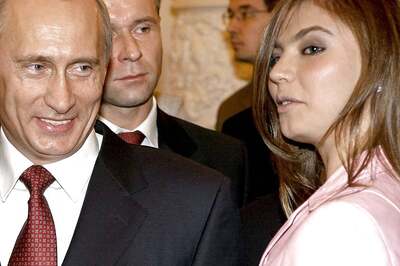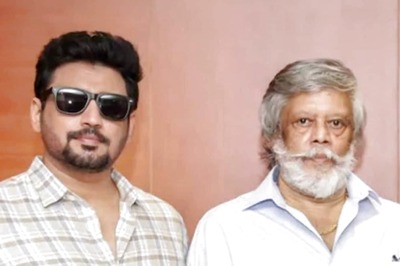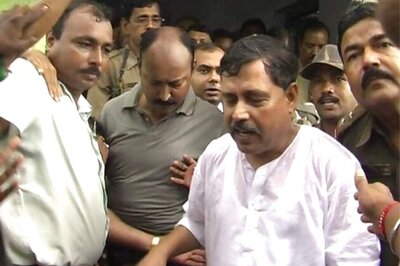
views
Tehran: Iran's Supreme Leader Ayatollah Ali Khamenei warned the United States and Israel on Thursday not to launch military action against its nuclear sites, saying it would be met with "iron fists", state television reported.
Tension over Iran's nuclear programme has increased since Tuesday when the International Atomic Energy Agency (IAEA) reported that Tehran appeared to have worked on designing a bomb and may still be conducting secret research to that end.
Speculation has heightened in the Israeli media that Israel may strike Iran's nuclear sites and there is speculation in the Western press about a possible U.S. attack.
Iran denounced the United Nations watchdog's report as "unbalanced" and "politically motivated". There were concerns on the oil market that the standoff could escalate militarily.
In the strongest comments by the Iranian authorities in recent days, the country's most powerful figure, Khamenei, said Iran would retaliate against any attack by "the enemies", but added that Iran had no intention of starting a "bloody war".
"Our enemies, particularly the Zionist regime (Israel), America and its allies, should know that any kind of threat and attack or even thinking about any (military) action will be firmly responded to," Khamenei said on state television.
"The Revolutionary Guards and army and our nation...will answer attacks with strong slaps and iron fists," he added.
Israel, which Iran refuses to recognise, and the United States say all options are on the table in confronting Tehran, including military if diplomacy fails to resolve the dispute.
Israel reacted to the report by urging the international community to stop Iran from getting nuclear weapons, saying its pursuit of such arms endangered "the peace of the world".
"One IOTA"
A close strategic ally of Western powers, Israel is widely believed to have the Middle East region's only nuclear arsenal, dating back decades. It has never confirmed or denied its existence under a policy of ambiguity designed to deter attacks.
Israel bombed Iraq's Osirak atomic reactor in 1981 and carried out a similar strike in Syria in 2007.
Khamenei said Iran would "respond to threats by threats".
"The firm Iranian nation is not one to sit back and observe threats by fragile and material-minded powers," Khamenei told a gathering at Iran's Army Academy.
Western powers have called for heavier sanctions against the Islamic Republic. But gaining agreement on more U.N. Security Council sanctions appears difficult, with Russia saying it will not back new sanctions.
The United States and its European allies accuse Iran of trying to build bombs under cover of a civilian nuclear programme. The major oil-producing state denies this, saying it needs nuclear technology to improve its electricity supply for a rapidly growing population.
So far, a world power strategy of increased diplomatic pressure and international sanctions has not induced Iran to halt its sensitive nuclear activities.
President Mahmoud Ahmadinejad said on Wednesday that Iran "will not pull back one iota from its (nuclear) path", but expressed Tehran's readiness for talks with major powers.
Talks between the P5+1 powers -- a grouping of the United States, Britain, France, Germany, Russia and China -- and Iran over its nuclear ambitions have failed in the past.
Iran's announcement last year that it had escalated uranium enrichment from the low level needed for electricity production to 20 percent, alarmed many countries that feared it was a key step towards making material potent enough for a nuclear bomb.
Tehran says the fuel is needed to make isotopes for cancer treatment.



















Comments
0 comment